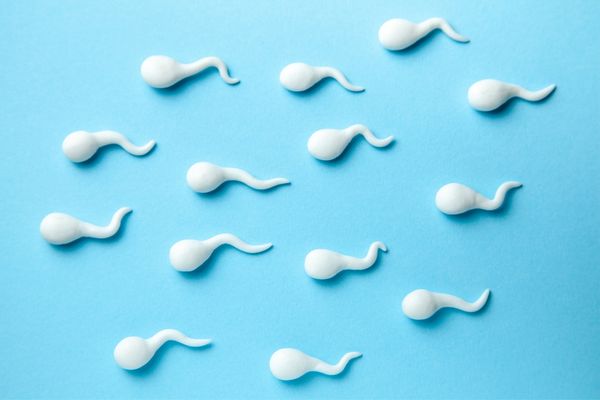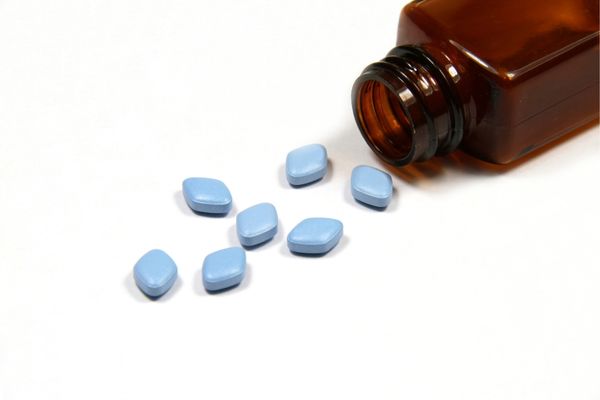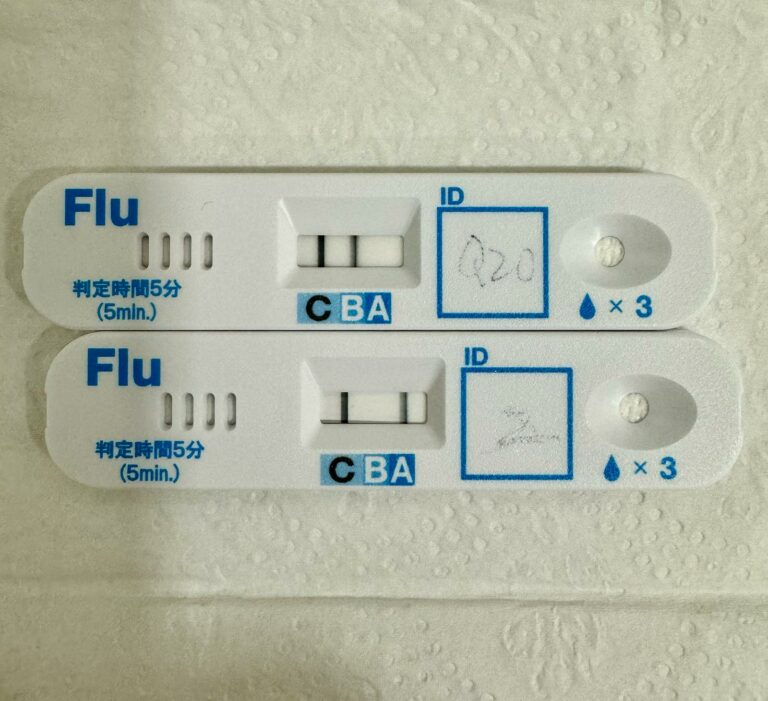There could be several reasons why you are losing your erection. Some common causes of erectile dysfunction include:
- Physical factors: Chronic conditions such as diabetes, heart disease, or obesity can interfere with normal blood flow, leading to erectile problems.
- Psychological factors: Stress, anxiety, depression, or relationship problems can cause a temporary or permanent loss of erection.
- Medications: Certain medicines, such as blood pressure medications (beta-blockers like bisoprolol) or depression drugs (SSRIs like paroxetine), can cause erectile problems as a side effect.
- Substance abuse: Excessive alcohol consumption or the use of drugs can impair sexual function.
- Hormonal imbalances: Low testosterone levels can cause erectile dysfunction.
If you are experiencing difficulty maintaining an erection, it’s important to speak with your trusted doctor, who can help determine the underlying cause and recommend appropriate treatment. In some cases, lifestyle changes such as reducing stress, exercising regularly, and quitting smoking may help improve erectile function. If the problem is more serious, medications or other treatments may be necessary.
How long can the average man stay erect?
The average time a man can maintain an erection can vary, but typically it lasts anywhere from a few minutes to an hour. It’s important to note that every man is different and there is no set “normal” duration for an erection. Factors such as age, physical health, and psychological well-being can all play a role in how long an erection lasts.
In general, younger men tend to have longer lasting erections than older men, and physical stimulation or excitement can also affect the duration of an erection. However, if you are experiencing significantly shorter or longer erections than what you consider normal for you, or if you are having difficulty getting or maintaining an erection, it may be a sign of a more serious health issue and it’s important to talk to your trusted doctor.
How many erections per day? How many times a day do guys get hard?
The number of erections a man has per day can vary widely depending on several factors, such as age, health, and sexual activity. On average, a man in his 20s or 30s might have several erections, around 3 to 4 per day, while an older man might have fewer, probably 2 to 3 per day.
It’s not uncommon for a man to have several spontaneous erections during the day, particularly during REM sleep, when the brain is more active. Sexual stimulation or thoughts, physical activity, and even stress can also trigger an erection.
It’s important to note that the frequency of erections can decrease with age and as a result of certain medical conditions or medications. If you are concerned about the number of erections you are having or if you are having difficulty getting or maintaining an erection, see your trusted doctor as soon as possible.

Is it good to erect everyday?
Having an erection every day is considered normal for most men, as long as it’s not causing discomfort or pain. Erections occur naturally in response to sexual stimulation, physical stimulation, or even just as a result of an increase in blood flow to the penis.
In general, frequent or daily erections are a sign of good penile health and can be a normal part of a healthy sexual response. However, if you are experiencing painful or prolonged erections, or if you have difficulty achieving or maintaining an erection, it’s important to speak with your trusted doctor, as these may be signs of a more serious health issue.
It’s important to note that frequent erections are not necessary for good sexual health, and a man can still have a healthy and fulfilling sex life without having an erection every day.
How long does it take for a man to be ready for round 2?
The time it takes for a man to be ready for sexual activity again after ejaculating, often referred to as the “refractory period,” can vary from person to person and can depend on several factors such as age, health, and sexual stimulation.
On average, most men need at least a few minutes to several hours to recover after ejaculating before they can become sexually aroused and have another erection. However, some younger men may be able to have another erection within a few minutes, while older men may need several hours or even a day or two to recover.
It’s important to remember that every man is different, and there is no set “normal” time for the refractory period. If you are concerned about the amount of time it takes for you to recover after ejaculating, it’s a good idea to talk to your trusted doctor, who can help determine if there is an underlying medical issue causing the problem.
Can guys go two rounds in a row?
Yes, it is possible for some men to have two sexual encounters in a row without a significant break in between. However, the ability to have multiple sexual encounters in a row can vary from person to person and can depend on several factors, such as age, health, sexual stimulation, and the duration of the refractory period.
In general, younger men tend to have a shorter refractory period and may be able to have multiple sexual encounters in a row more easily. As men age, the refractory period tends to increase and it may take longer for them to become sexually aroused again after ejaculating.
It’s important to remember that every man is different, and there is no set “normal” for the ability to have multiple sexual encounters in a row. If you are having difficulty with sexual function or if you are concerned about your ability to have multiple sexual encounters, check in with your trusted doctor, who can help determine if there is an underlying medical issue causing the problem.
How many times a night do guys get hard?
The number of times a man gets an erection in a single night can vary widely and can depend on several factors, such as age, health, sexual stimulation, and the stage of sleep.
It’s not uncommon for a man to have several spontaneous erections, around 3 to 4 erections over an 8 hour sleep cycle during the night, particularly during REM sleep, when the brain is more active. This is normal and is a sign of good penile health. However, the frequency of nocturnal erections can decrease with age and as a result of certain medical conditions or medications.
In general, it’s difficult to determine the exact number of nocturnal erections a man has in a single night, as they can occur spontaneously and a man may not always be aware of them. If you are concerned about the frequency of your nocturnal erections or if you are having difficulty getting or maintaining an erection, it’s a good idea to speak with your trusted doctor as soon as possible.

Do all guys get hard every morning?
No, not all guys get an erection every morning. Erections can happen for a variety of reasons, including sexual arousal, physical stimulation, and even spontaneous nocturnal erections during sleep. However, not everyone experiences an erection every day or every morning. Factors such as age, health, stress and overall well-being can affect the frequency of erections. It is also important to note that having an erection is a normal and natural part of being male and should not cause concern unless it is associated with other symptoms or is causing discomfort.
Why does a man get erect in the morning?
A man may get an erection in the morning, often referred to as a “morning glory,” due to the presence of high levels of testosterone in the blood and the body’s natural physical response to this increase. Erections can also occur during sleep due to the phenomenon of nocturnal penile tumescence (NPT), which is a normal and physiological part of the male sleep cycle. The presence or absence of a morning erection is not always an indicator of sexual function or overall health, and a man may not have a morning erection on a regular basis.
NPT is a spontaneous and repeated occurrence of erections that happen during the rapid eye movement (REM) stage of sleep. During the night, men will typically have several erections, which are usually accompanied by a full bladder. The exact cause of NPT is not well understood, but it is believed to be related to the complex interplay of various physiological and neurological factors, including changes in blood flow, hormone levels, and nerve stimulation. These erections are thought to be a result of the natural fluctuations in hormone levels and the relaxation of the muscles that control blood flow to the penis during sleep. The result is often a morning erection, which can last for a few minutes or longer.
It is worth noting that the frequency and duration of NPT can vary from person to person and can also change over time. Some men may experience NPT more frequently and for longer periods of time, while others may not experience it as frequently or at all.
How many times should a man release sperm in a week?
There is no set number of times that a man should release sperm in a week. Ejaculation frequency can vary greatly from person to person and can be influenced by a variety of factors, such as age, sexual activity, overall health, and personal preferences.
For some men, ejaculating several times a day may be normal, while for others, it may only occur once a week or less frequently. As long as a man is comfortable with his ejaculation frequency and it is not causing any pain or discomfort, there is typically no need for concern.
It’s important to remember that ejaculation frequency is not necessarily indicative of fertility or overall sexual function. However, for optimum fertility, in order to conceive children, men are recommended to keep the ejaculatory frequency to 2 to 3 times per week to have optimum sperm quality and quantity to increase the chance for conception.
What happens if you hold your sperm for too long?
Holding back or avoiding ejaculation for too long can lead to a number of physical and psychological symptoms, including:
- Semen volume and quality: Abstaining from ejaculation for an extended period of time can cause the semen to become thicker and the volume to decrease. This can also lead to a decrease in the number of sperm and their overall quality.
- Build-up of semen: If semen is not regularly released through ejaculation, it can build up and cause discomfort in the testicles.
- Sexual tension: Holding in semen for an extended period of time can lead to increased sexual tension and frustration. Avoiding ejaculation can lead to feelings of anxiety, frustration, or decreased sexual desire.
- Urinary symptoms: Prolonged abstention can cause the semen to back up into the bladder, leading to symptoms such as discomfort, pain, and frequent urination.
It is worth noting that these effects are generally not permanent and can be reversed with regular ejaculation. However, if you are experiencing discomfort or other symptoms related to abstaining from ejaculation, it is important to speak with a trusted doctor for guidance.
In general, it is considered healthy for a man to ejaculate regularly, either through sexual activity or through self-stimulation. This can help maintain healthy sperm quality and reduce the risk of discomfort or other symptoms associated with holding back semen. It is important to maintain a healthy and active sexual life, and to engage in sexual activity or ejaculation at a frequency that feels comfortable and natural for you.

How long does it take for sperm to refill?
The time it takes for sperm to refill, or for the body to produce new sperm, can vary from person to person and is dependent on a number of factors, including age, health, and overall well-being.
On average, it takes the male body about 2 to 3 days to produce new sperm and refill the semen supply. However, this can vary greatly and some men may have a shorter or longer refilling time. In general, young, healthy men tend to have a quicker sperm refill time compared to older men or men with certain health conditions.
It’s important to note that the ability to produce and refill sperm can be influenced by a number of factors, including lifestyle, diet, and overall health. For example, certain lifestyle choices, such as using drugs or alcohol, can impact sperm production and negatively affect the ability of the body to refill the sperm supply. In particular, smoking has been shown to decrease sperm quantity and quality, and increase the numbers of faulty sperm.
If a man is concerned about his sperm quality or quantity, or if he is worried about his fertility, he should speak with a trusted doctor to assess his overall health, make recommendations for lifestyle changes, and provide appropriate medical treatment if needed. .
Why do I keep losing my erection?
Losing an erection can be a common experience for many men and can be caused by a variety of factors, including:
- Performance anxiety: Worrying about losing an erection during sexual activity can create a self-fulfilling prophecy and cause the erection to be lost.
- Stress: Stress and anxiety can interfere with sexual function and lead to difficulty maintaining an erection.
- Physical factors: Certain medical conditions, such as heart disease, diabetes, or high blood pressure, can interfere with blood flow and cause difficulty achieving or maintaining an erection.
- Medications: Some medications, such as blood pressure medicines like bisoprolol, can affect sexual function and cause difficulty maintaining an erection.
- Substance abuse: Substance abuse, such as alcohol or drug use, can interfere with sexual function and cause difficulty maintaining an erection.
- Fatigue or Exhaustion: Feeling tired or exhausted can affect sexual function and make it more difficult to maintain an erection.
- Relationship issues: Relationship problems, such as difficulty communicating with a partner or a lack of emotional intimacy, can affect sexual function and lead to difficulty maintaining an erection.
It’s important to note that losing an erection occasionally is a normal part of sexual function and is not necessarily cause for concern. In some cases, losing an erection may be a temporary issue that resolves on its own, while in other cases, it may be a sign of a more serious underlying health condition that requires medical attention.
If a man is experiencing persistent difficulty maintaining an erection, it would be best to see a trusted doctor as soon as possible to determine the underlying cause and the best course of action to provide appropriate treatment if necessary.

How do I know if I have erectile dysfunction?
Erectile dysfunction (ED) is a condition in which a man has difficulty achieving or maintaining an erection sufficient for sexual activity. Some common symptoms of ED include:
- Difficulty achieving an erection: A man with ED may have difficulty getting or maintaining an erection, even when sexually aroused.
- Reduced sexual desire: A man with ED may have a decreased interest in sexual activity.
- Erections that are not hard enough for penetration: Even when a man is able to achieve an erection, it may not be firm enough for sexual activity.
- Early ejaculation: A man with ED may experience early ejaculation, or the inability to delay ejaculation during sexual activity.
It’s important to note that these symptoms can also be caused by a variety of other factors, including stress and anxiety, or even certain health conditions like diabetes and high cholesterol levels.
Erectile dysfunction is a common condition that affects many men of all ages. In many cases, it is a temporary issue that resolves on its own, while in other cases, it may be a sign of a more serious underlying health condition that requires medical attention. ED can also have a significant impact on sexual function and overall quality of life, so it’s important to seek help if you are experiencing symptoms. A trusted doctor can help you determine the cause of erectile dysfunction and provide appropriate medical treatment, if necessary.
How does a man with erectile dysfunction feel?
A man with erectile dysfunction (ED) may experience a range of emotions and feelings. Some common emotions and feelings associated with ED include:
- Frustration: ED can be a source of frustration for many men, particularly if they have difficulty achieving or maintaining an erection during sexual activity.
- Embarrassment: Many men feel embarrassed about ED and may be reluctant to discuss it with others, including their partner or a doctor.
- Low self-esteem: ED can lead to feelings of low self-esteem and self-doubt, particularly if it is affecting the man’s sexual relationship with his partner.
- Anxiety: ED can cause anxiety and stress, especially if the man is concerned about his ability to perform sexually.
- Depression: ED can contribute to feelings of depression and low mood, particularly if it is affecting the man’s overall quality of life and relationships.
It’s important for men with ED to understand that it is a common condition that can be effectively treated. More importantly, the underlying reasons for ED needs to be identified by a doctor, before any interventions can be instituted. By seeking help from a trusted doctor, many men are able to improve their sexual function and regain their confidence and self-esteem.
At what age erectile dysfunction starts?
Erectile dysfunction (ED) can occur at any age, but it becomes more common as men get older. In general, the risk of ED increases with age, but it can also occur in younger men for a variety of reasons, including psychological factors, physical health issues, and lifestyle factors.
ED can occur at any age, even in young men, and it is not a normal part of aging. It’s estimated that about 5% of men in their 40s and between 15% and 25% of men in their 60s experience ED. By the age of 70, up to 75% of men may experience ED to some degree.
If you are experiencing difficulty achieving or maintaining an erection, it’s important to speak with a trusted doctor. Your trusted doctor will assess your health, make recommendations for lifestyle changes, and provide appropriate medical treatment if necessary. Early treatment can help prevent the progression of ED, improve sexual function and reduce psychological distress.

Can a man with ED still have an orgasm?
Yes, a man with erectile dysfunction (ED) can still have an orgasm and ejaculate semen, even if he is unable to achieve or maintain an erection. Orgasms and ejaculation are controlled by different parts of the nervous system and do not necessarily require an erection.
It’s important to note that ED and the ability to have an orgasm are separate conditions, and they may or may not be related. Some men with ED may still be able to have an orgasm, while others may have difficulty achieving an orgasm.
If you are experiencing symptoms of ED and difficulty with orgasm, it’s important to speak with a trusted doctor. Your doctor should assess your health, make recommendations for lifestyle changes, and provide appropriate medical treatment if necessary. With the right treatment, many men with ED are able to achieve and maintain an erection and improve their sexual performance.
Is it normal to not get hard for a week?
It is normal for men to have occasional difficulties achieving or maintaining an erection. However, if you have been unable to achieve an erection for a week or longer, it may be a sign of a more serious underlying health condition or a persistent case of erectile dysfunction (ED).
ED is defined as the persistent inability to achieve or maintain an erection sufficient for sexual intercourse.
There are many possible causes of ED, including physical factors, such as cardiovascular disease, diabetes, high blood pressure, high cholesterol, obesity, and hormonal imbalances. Psychological factors, such as stress, anxiety, and depression, can also play a role.
The frequency of ED varies from man to man, and can be influenced by a number of factors, including age, health conditions, lifestyle, and medication use. In some cases, ED may be temporary and resolve on its own, while in other cases, it may be a sign of a more serious underlying health condition that requires medical attention. If you are experiencing difficulty achieving an erection for a week or longer, it’s important to speak to your trusted doctor.
Can erectile dysfunction be cured? How can you fix your erectile dysfunction?
Erectile dysfunction (ED) can often be treated, but it may not always be completely cured. The success of treatment depends on the underlying cause of the ED.
Here are some of the most common treatments for ED:
- Lifestyle changes: Making healthy lifestyle changes, such as losing weight, eating a healthy diet, and exercising regularly, can improve blood flow and reduce the risk of ED.
- Medications: There are several oral medications, such as sildenafil (Viagra), avanafil (Spedra) that can be effective in treating ED. These medications work by increasing blood flow to the penis.
- Vacuum erection devices: A vacuum erection device can be an effective treatment for ED. This device uses suction to draw blood into the penis, which can then be maintained with an erection band.
- Penile injections: Intracavernosal injections of alprostadil (Caverject) can be an effective treatment for ED. This medication is injected directly into the penis and works by increasing blood flow to the penis.
- Penile implants: In some cases, penile implants, such as a penile prosthesis, can be an effective treatment for ED. This surgical procedure involves implanting a device into the penis that can be used to achieve and maintain an erection.
- Counseling: Psychological counseling can be an effective treatment for ED, especially if the ED is caused by psychological factors, such as stress, anxiety, or depression.
In many cases, a combination of treatments is the most effective approach. For example, a man may take oral medication for ED and make lifestyle changes such as exercise, weight loss, and stress management, to improve his overall health and wellbeing.
It’s important to note that ED is a common condition that can affect men of all ages and is not a reflection of a man’s masculinity or self-worth.
If you are experiencing ED, it’s important to seek help early from your trusted doctor. With the right treatment, many men with ED are able to achieve and maintain an erection and improve their sexual performance.

How can I test myself for erectile dysfunction?
In general, it would be difficult to test oneself for erectile dysfunction. Diagnosis of erectile dysfunction (ED) typically begins with a thorough medical history and physical examination by your doctor. During the physical examination, your trusted doctor should examine your penis and testicles, and check your pulse, blood pressure, and perhaps get a bedside electrocardiogram (ECG) done. This comprehensive evaluation is needed to determine the underlying cause of your ED.
In addition to the clinical examination, these are some of the tests that your doctor may use to diagnose ED and assess the severity of ED:
- Blood tests: Blood tests can be used to measure levels of hormones, such as testosterone, and check for conditions, such as diabetes, that can cause ED.
- Urinalysis: A urinalysis can help your doctor determine if there are any underlying medical conditions, such as kidney disease, that can cause ED.
- Psychological tests: Psychological tests can help the your doctor determine if there are any psychological causes of ED, such as stress, anxiety, or depression.
- Nocturnal penile tumescence (NPT) test: This test involves wearing a device that measures erections while you sleep. The NPT test can help determine if ED is caused by a physical problem or a psychological issue.
- Penile Doppler ultrasound: This test uses high-frequency sound waves to measure blood flow in the penis and assess for circulation problems.
As you can see, sometimes the diagnosis and severity assessment of ED may not be that straightforward, hence it’s important you speak with a trusted doctor to determine the best course of action for you.
Will erectile dysfunction go away without treatment?
Erectile dysfunction (ED) can be a temporary or ongoing issue. Whether or not it will go away without treatment will depend on the underlying cause of the ED. For some men, ED may be temporary and go away on its own, particularly if it is caused by stress, anxiety, or fatigue. Making healthy lifestyle changes, such as losing weight, eating a healthy diet, and exercising regularly, can also help improve ED in some cases.
However, for other men, ED may be a chronic condition that requires treatment. If the ED is caused by a physical health condition, such as cardiovascular disease, diabetes, high blood pressure, or high cholesterol, it may not go away without treatment of the underlying condition.
It’s important to speak with your trusted doctor if you are experiencing ED. Your doctor should assess your health, make recommendations for lifestyle changes, and provide appropriate medical treatment if necessary.

How can I fix my erectile dysfunction naturally?
Erectile dysfunction (ED) can be caused by a variety of factors, including physical, psychological, and lifestyle factors. While there is no guaranteed cure for ED, there are several natural approaches that may help improve the symptoms of ED and enhance sexual function.
Here are some natural approaches that may help with ED:
- Exercise regularly: Regular physical activity, such as aerobic exercise, can improve blood flow, enhance cardiovascular health, and reduce the risk of ED.
- Maintain a healthy diet: A diet rich in fruits, vegetables, whole grains, and lean protein can help promote overall health and reduce the risk of ED.
- Quit smoking: Smoking is a major risk factor for ED, and quitting can help improve sexual function.
- Reduce alcohol consumption: Excessive alcohol consumption can cause ED and impair sexual function.
- Get enough sleep: Sleep is important for overall health and sexual function, and getting enough sleep can help reduce the risk of ED.
- Reduce stress: Stress can contribute to ED, and finding ways to reduce stress, such as through relaxation techniques or therapy, can help improve sexual function.
It’s important to keep in mind that these are general guidelines, and what works for one person may not work for another. If you have persistent ED, it’s important to consult with your trusted doctor to determine the underlying cause and determine the best course of treatment.
How can I increase my erection power?
There are several strategies that can help increase your erection power and improve your sexual function:
- Exercise regularly: Regular physical activity can improve circulation and cardiovascular health, which can help enhance erectile function.
- Eat a healthy diet: A diet that is rich in fruits, vegetables, whole grains, and lean protein can help improve your overall health, which can in turn help improve your sexual function.
- Quit smoking: Smoking can damage blood vessels and affect blood flow to the penis, leading to ED. Quitting smoking can help reverse these effects.
- Limit alcohol consumption: Excessive alcohol consumption can affect sexual performance and lead to ED. Limiting alcohol intake to moderate levels can help improve your overall health and sexual function.
- Reduce stress: Stress can interfere with sexual performance and cause ED. Engaging in relaxation techniques such as deep breathing, meditation, or yoga can help reduce stress and improve sexual function.
- Get adequate sleep: Sleep deprivation can affect hormone levels and contribute to ED. Getting enough sleep can help improve your overall health and sexual function.
- Try pelvic floor exercises: Strengthening the muscles that control ejaculation can help improve erection quality and control.
It’s important to keep in mind that every man is different, and what works for one person may not work for another. If you have persistent ED, it’s important to consult with your trusted doctor to determine the underlying cause and determine the best course of treatment.

What is the fastest way to cure erectile dysfunction?
The fastest way to cure erectile dysfunction (ED) depends on the underlying cause of the condition. In some cases, lifestyle changes and natural remedies may provide quick relief. In other cases, prescription medications or medical interventions may be necessary.
Here are some steps that may help improve ED quickly:
- Identify and address any underlying health conditions: Certain health conditions, such as diabetes, cardiovascular disease, and high blood pressure, can contribute to ED. Treating these conditions can help improve ED.
- Reduce stress: Stress can interfere with sexual performance and lead to ED. Engaging in relaxation techniques such as deep breathing, meditation, or yoga can help reduce stress and improve sexual function.
- Limit alcohol intake: Excessive alcohol consumption can interfere with sexual performance and lead to ED. Limiting alcohol intake to moderate levels can help improve overall health and sexual function.
- Medications: Taking prescription medications, such as sildenafil (Viagra), avanafil (Spedra), can produce an erection within 30 minutes to an hour after taking the drug.
- Vacuum erection devices: This treatment involves using a vacuum pump to produce an erection, which can then be maintained using a penile constriction ring. This method can produce an erection within a few minutes.
- Penile injections: This treatment involves injecting medication into the penis to increase blood flow and produce an erection. An erection can usually be achieved within 5 to 20 minutes after the injection.
While medications and other treatments can be effective in improving ED, they may not work for everyone and can have side effects. It’s important for men with ED to understand that it is a common condition that can be effectively treated. More importantly, the underlying reasons for ED needs to be identified by a doctor, before any interventions can be instituted. By seeking help from a trusted doctor, many men are able to improve their sexual function and regain their confidence and self-esteem.
Conclusion of a Erectile Dysfunction
In Paddington Medical, Dr Lee Joon Loong is the main GP doctor that treats all men’s health issues, including erectile dysfunction (ED). Dr Lee previously worked in multiple urological departments in Singapore and Australia and has gained experience in Men’s Health issues. He is also a member of the Society of Men’s Health Singapore, and has achieved the Certificate in Andrology (SMHS).
Dr Lee has helped many men with erectile dysfunction and other men’s health issues like urinary problems and ejaculation issues. He passionately believes that men should seek help from a trusted doctor in order to improve their sexual function, and regain their self esteem and confidence.
GET IN TOUCH
Schedule a Visit

Dr Lee Joon Loong
Medical Director
MBBS (Australia)
Graduate Diploma in Geriatric Medicine
Designated Workplace Doctor (CAW)
EIMS Primary Care Physician
Certificate Course in Andrology (Men’s Health)
Dr Lee is in Clinic on Monday, Wednesday, Friday, Saturday and Sunday.
Dr Lee’s surgical procedure days are on Tuesday and Thursday





